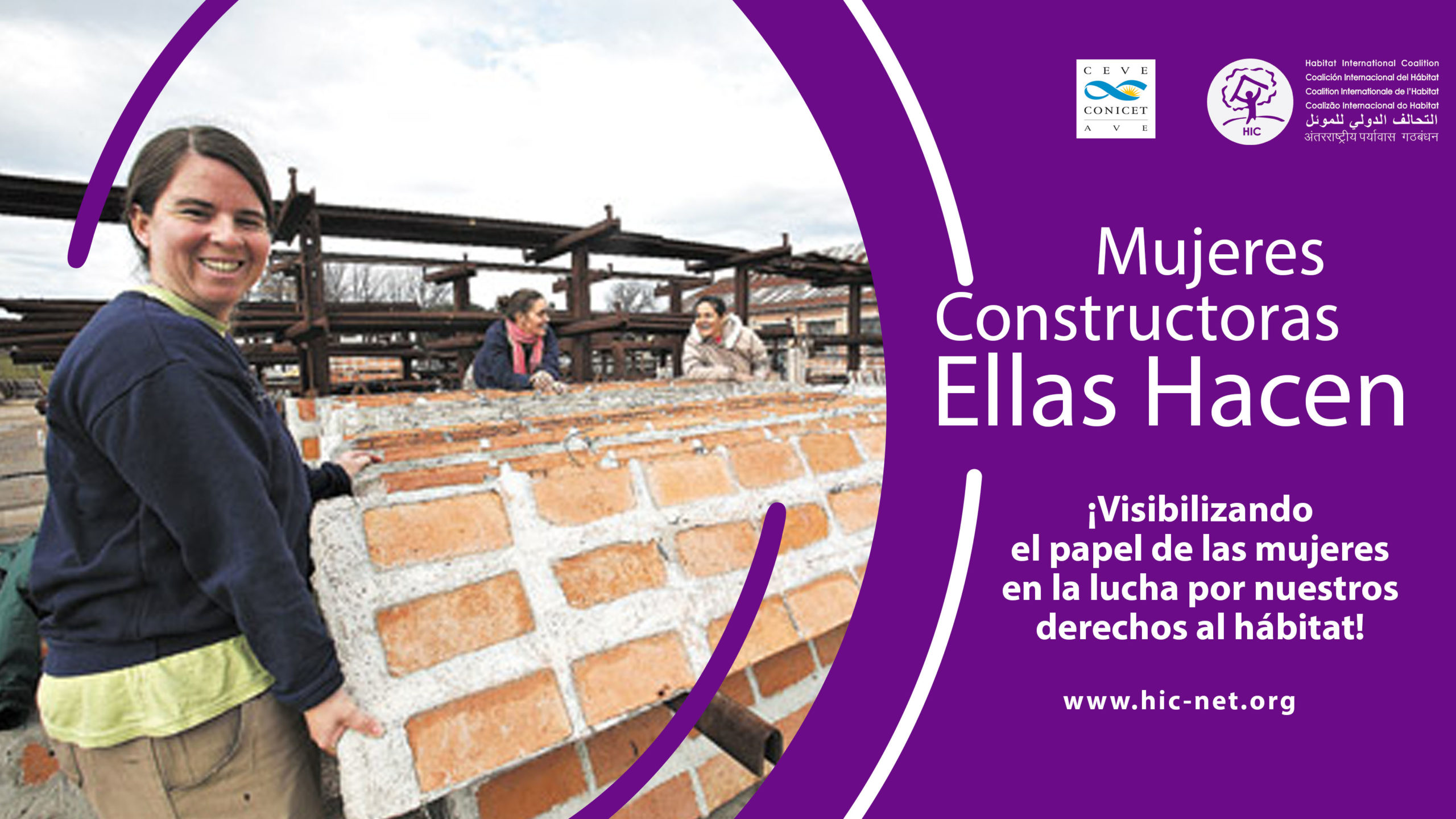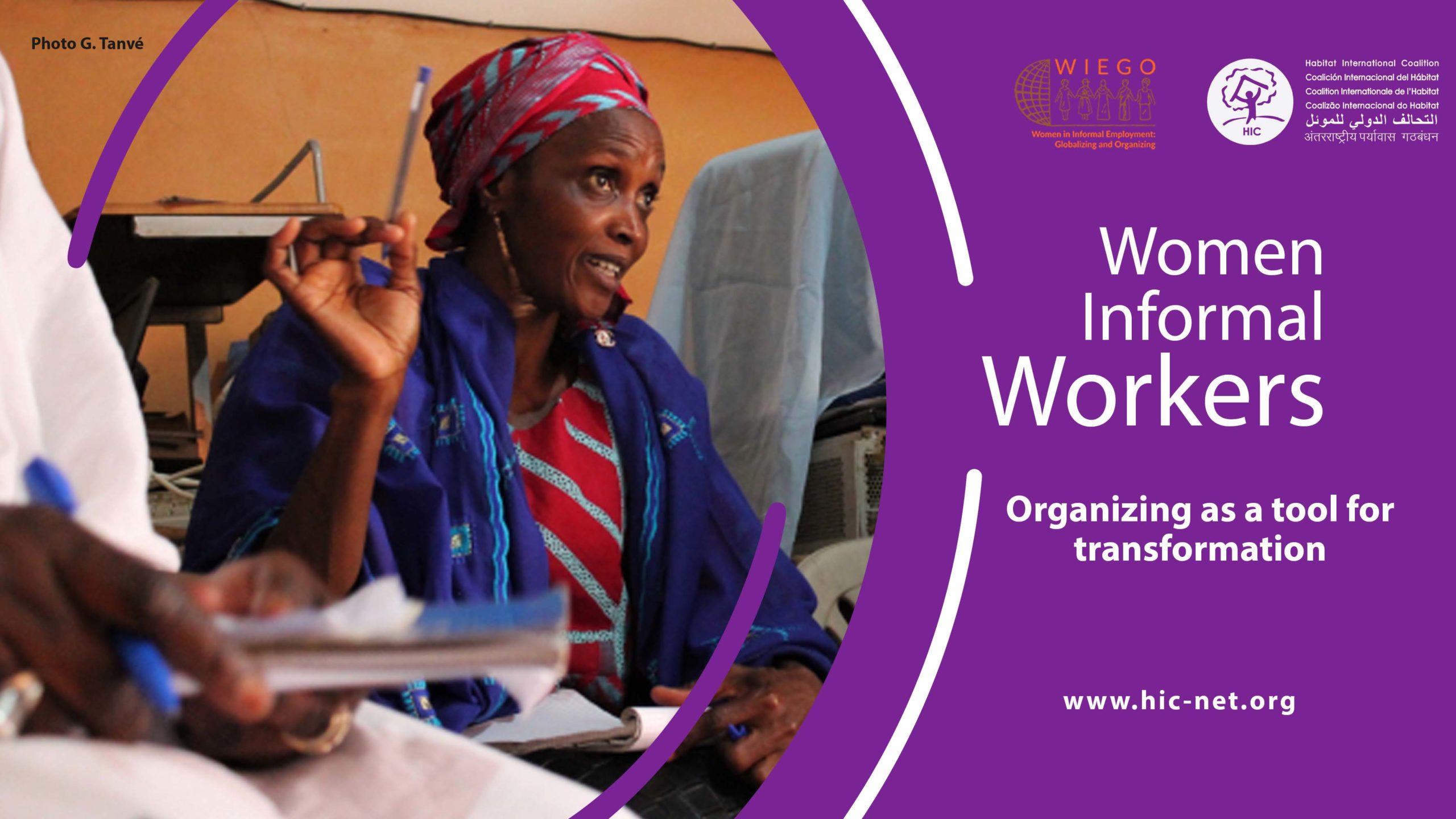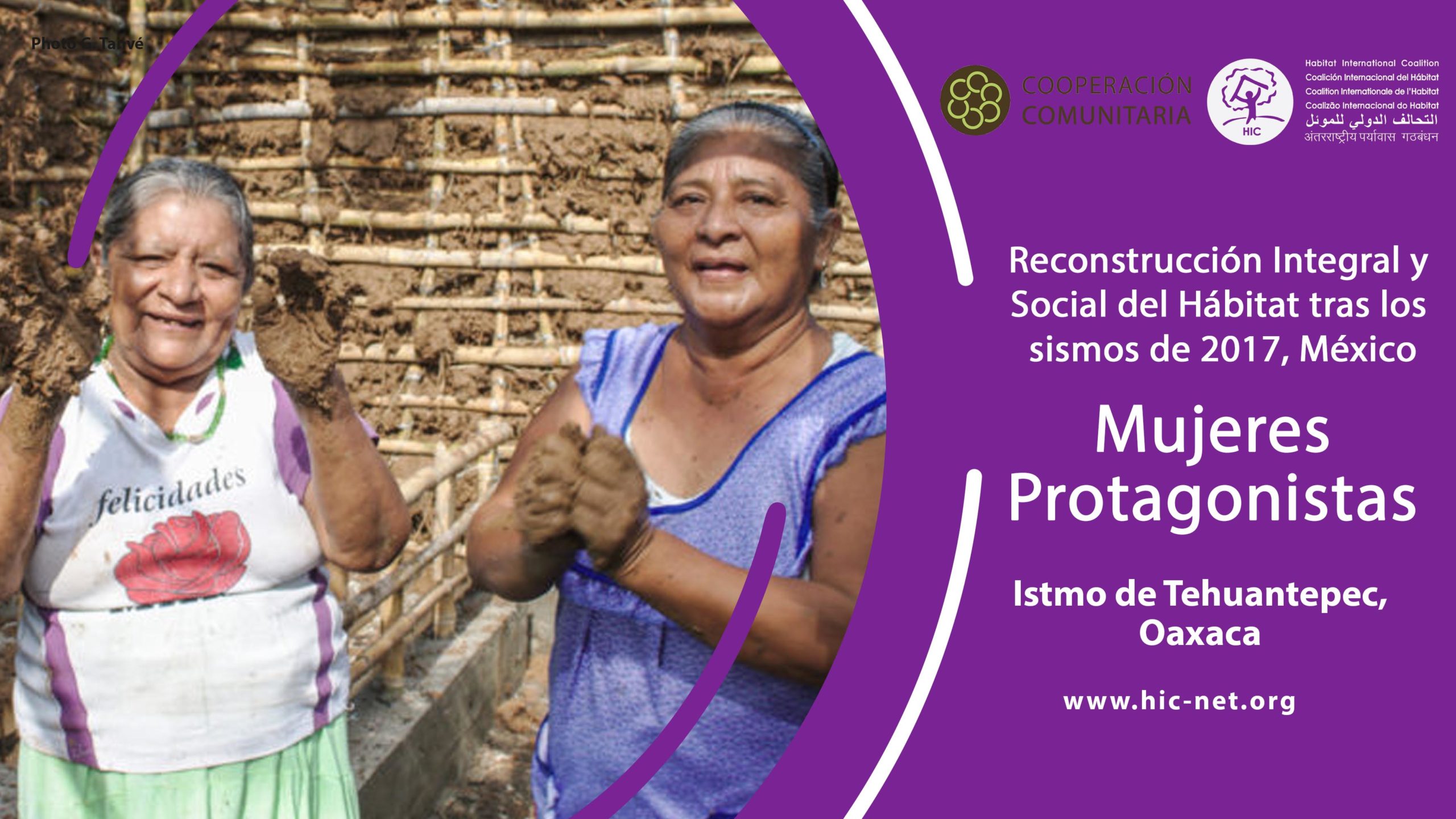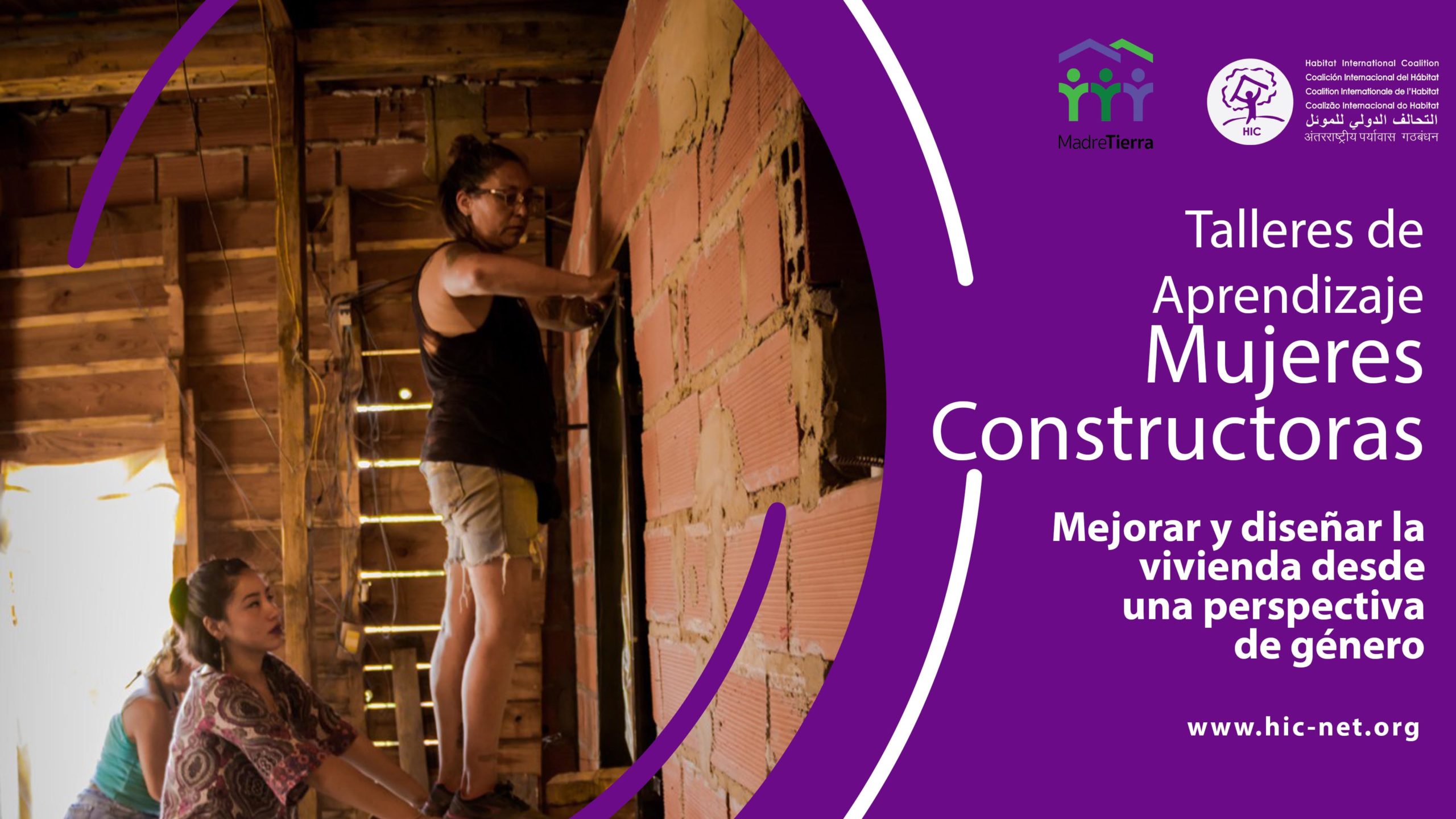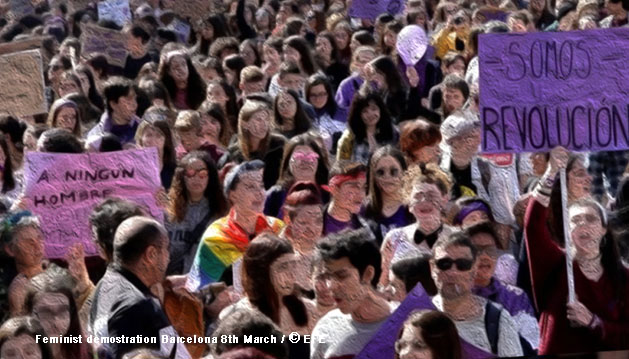
Text from Adriana Allen, HIC President and Irene Fuertes, HIC-GS
Planet 50-50 by 2030?
This year marks the twenty-fifth anniversary of the Fourth World Conference on Women and the adoption of the Beijing Declaration and Platform for Action (1995). We are also reaching a five-year milestone on the road to achieving the Sustainable Development Goals of the 2030 Agenda. 2020 is, therefore, a crucial year for the accelerated realization of gender equality and the empowerment of all women and girls, everywhere. How well are we doing?
If women are about 50% of the population, the world cannot continue to spin around without us. In fact, the world has never turned without us, only that our work has been historically invisible. From HIC we want to transcend the 2020 International Women’s Day on 8th March. Throughout the year, we aim to make visible, recognize and celebrate the work of those women and collectives within HIC Membership and Allied organizations that fight for our rights related to habitat and social justice. Would you like to join us?
“Different, not unequal”
![]() Women want to be different, but not unequal” Ana Falú
Women want to be different, but not unequal” Ana Falú
Ana Falú – internationally recognized for her fight for gender equity and HIC Board Member Representative of Women’s and/or Feminist Movements – reminds us that being different does not mean being unequal. In many contexts, property laws and often religious, social and cultural norms do not yet recognize our rights as equals. Shivani Chaudhry – Executive Director of Housing and Land Rights Network in India – invites us to reflect and act upon the conditions that make it difficult for women to access the right to adequate housing and land in many countries. This is because in many contexts, property laws and often religious, social and cultural norms do not yet recognize our rights as equals. Additionally, single women or single heads of households are frequently discriminated against in their access to rental housing, basic services and public spaces. Their recognition and mobility through labor, community organization and political participation spheres of life are still highly restricted.
Women are victims of an unfair system but at the same time they are an essential agent in the collective construction of life. Despite the obstacles, her work is indispensable and necessary. The work of countless organizations within HIC is testimony of active struggles to recognize them as such. The work of Women in Development and Environment (Nigeria), Madre Tierra and CISCSA (Argentina), Community Cooperation (Mexico); Corporación Región (Colombia), Association pour le Progrès et la Défense des Droits des Femmes / Filles or Coopérative Féminine pour la Protection de l’Environnement (Mali), among many other organizations, converges in a broad collective mobilization for gender equality.
Why do we talk about ‘feminist’ perspectives?
![]() Feminism touches the center of gravity of all power asymmetries” Rita Segato
Feminism touches the center of gravity of all power asymmetries” Rita Segato
In recent years, the relationship between women, the habitat in general and the urban environment in particular has opened a space for reflection, struggle and action to rethink our roles, capacities, knowledge, experience, and rights. Today we are witnessing a rising wave of social mobilization under the banner not only of gender equality, but also of feminist urbanism. This term does not refer exclusively to our reality in cities but, more broadly, to our role in the intersection between the social, political and spatial. Paraphrasing Rita Segato: at the intersection of multiple power asymmetries. Women and girls produce the habitat on a day-to-day basis and actively participate in the construction, financing, repair and care of the spaces we inhabit, not only at the level of the home or the neighborhood, but at the scale of our human settlements in its wide urban-rural spectrum. However, the global United Cities and Local Governments (UCLG) network estimates that only 20% of the councilors and 5% of the mayors of the world are women. This asymmetry is due to the persistence of patriarchal structures that subordinate our needs, dreams and rights in the labor and political sphere, limiting our mobility through different spheres of life beyond the everyday.
Let’s put women’s work at the heart of the debate.
![]() To sustain life, we don’t just need natural resources. We need other people to take care of us. This work has historically been carried out by women in spaces invisible to politics and the economy, such as homes.”” Yayo Herrero
To sustain life, we don’t just need natural resources. We need other people to take care of us. This work has historically been carried out by women in spaces invisible to politics and the economy, such as homes.”” Yayo Herrero
There are many stories of women who exercise strategies to fight for the right to housing and the defense of the territory, who demand climate justice and the right to the city, but how many do we know? We barely echo the stories of communities where women learn integrated social construction techniques adapted to the climate and culture. Nor do the testimonies of informal workers who work from sun to sun and which are also engines in networking and become the backbone of a production system that caters to many homes. It is time to make visible that women play a key role beyond the home, to make their stories visible, to learn from them, their experiences, struggles and actions.
Let’s build together a wave of recognition!
The list of women who, from the history and present of our Coalition, have and continue to struggle to make visible the role, experiences and rights of women and girls to be respected is long. The intention of this initiative is to publicly disseminate, recognize and value their work.
Help us to know your experience or that of other women so that those values reach more people!
- Use this template to share with us stories of social justice and habitat rights in which women are the protagonists.
- Share this message in social networks
